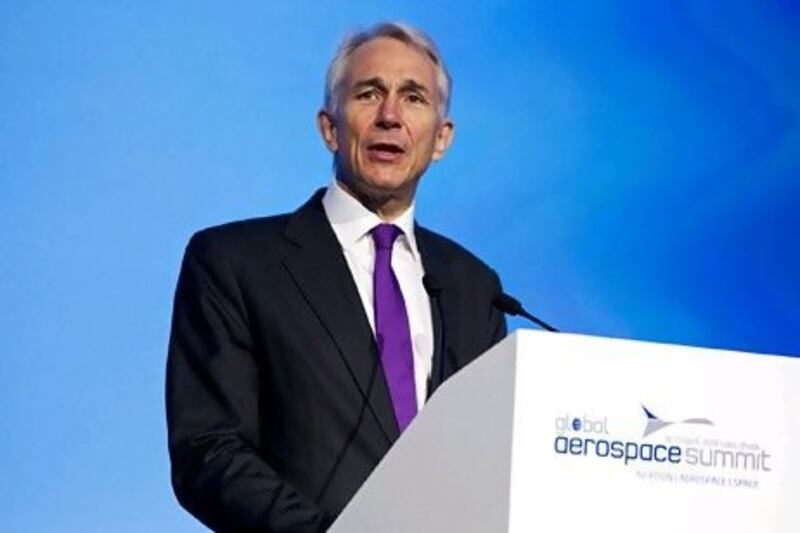Air traffic management across the Middle East and North Africa (Mena) is in chaos, the International Air Transport Association (IATA) has warned.
The blunt message was delivered to the Global Aerospace Summit in Abu Dhabi yesterday by Tony Tyler, the chief executive of IATA, in his opening "state of the industry" address.
He said failure to modernise and coordinate airspace would create a bottleneck.
"Within the Mena region, air traffic management infrastructure is not harmonised or facilitated to its full extent and routings in some areas are less efficient than they could be," said Mr Tyler.
"With movements growing 11 per cent annually in Bahrain, the Emirates and Muscat flight information regions, we could see a doubling of traffic in seven years, creating the potential for aerial bottlenecks."
The growth in east-west traffic to and from North Africa brings another dimension to the challenge.
"Add to this the fact that just around half of airspace is permanently open to civil aviation, with the rest controlled by the military and you have a recipe for future gridlock.
"Any forward look at aviation must incorporate a vision of adequate airport and air traffic management infrastructure. Without it, aviation's contribution as an economic catalyst is compromised.
"By value, 35 per cent of the world's trade in goods moves by air, although it represents less than 1 per cent by volume. Actions that make it harder for airlines and airports to participate in this trade have an impact far beyond the direct cargo supply chain. They resonate across the economy of the entire country.
"A manufacturer eager to invest in a new global logistics centre will not look to put it in an environment that makes it difficult to get parts and finished products to customers and markets; it will set up in a jurisdiction that welcomes its business with easy access."
However his warnings were not only for the Mena region.
"In Europe, we are seeing progress towards the single European sky (SES), but at a glacial pace that's out of step with what's urgently needed from both economic and environmental standpoints," he added.
"The SES would save 16 million tonnes of CO2 annually. But governments are not investing the political capital to get the job done. Only five of 27 states are on track to meet the unambitious goal of reducing average flight delays by 30 seconds by 2014."
Progress, however, is being made in the United States where the passage of US federal aviation administration legislation means it can move forward on its much-needed NextGen air traffic management system, said Mr Tyler.
Economically, the Middle East is performing better than other regions, but Mr Tyler warned the recovery was fragile.
"IATA sees a profit this year of US$500 million (Dh1.83 billion) for the region, which is raised from our previous estimate of $300m and represents a significant improvement compared to earnings of just $100m last year," he said.
"The Middle East is one of just two regions that have seen their outlook boosted since our December forecast, and the region as a whole also appears to be fully recovered from the negative effects on air travel of the 2011 Arab Spring.
"But these are not strong results measured against the size of the region's aviation sector. And the entire industry remains extremely vulnerable to any new shocks that could push it back into losses.
"Furthermore, even if the industry achieves our forecast profit of $3 billion, it will mean that collectively, airlines have delivered aggregate losses of $26bn on $5.5 trillion in revenues since 2001."
twitter: Follow and share our breaking business news. Follow us





